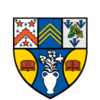The degree is highly practical, drawing on core disciplines of physiology, psychology, and sociology, while exploring the effects of physical activity and inactivity on individual health. This includes examining the needs of general and special populations, such as those experiencing pregnancy, obesity, and type 2 diabetes, and how to incorporate and increase physical activity at various levels. Topics covered include public health, health promotion, and designing, implementing, and assessing physical activity interventions through laboratory projects and field fitness tests. Students also engage in client consultations with different populations. All learning contributes to improving the health and wellbeing of the general population. Real-world industry experience is emphasized, with opportunities for work placements and internships in health and social care organizations. Smaller class sizes allow for a personalized approach, with teaching grounded in research to develop evidence-based physical activity and health practitioners with valuable skills.







